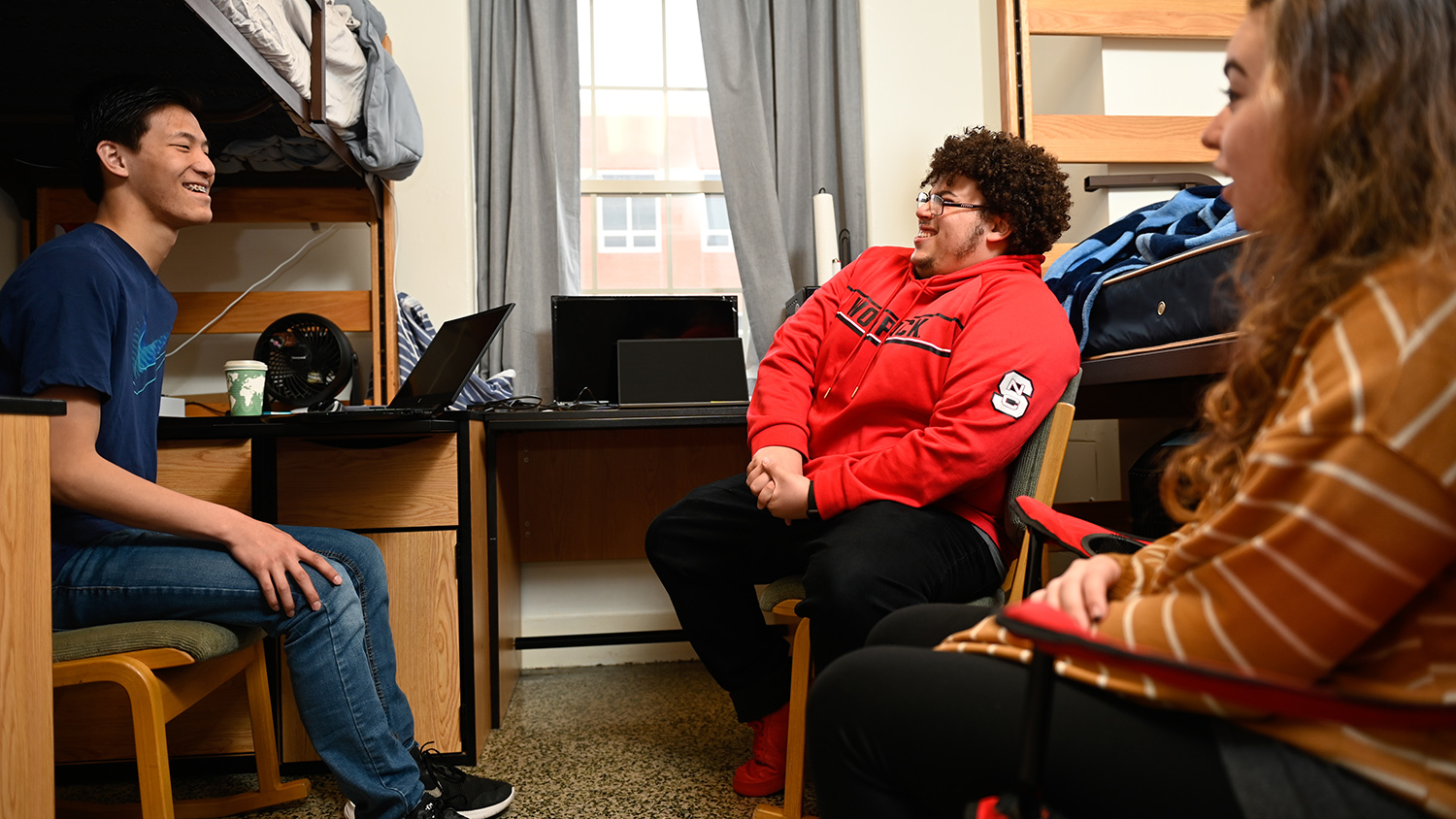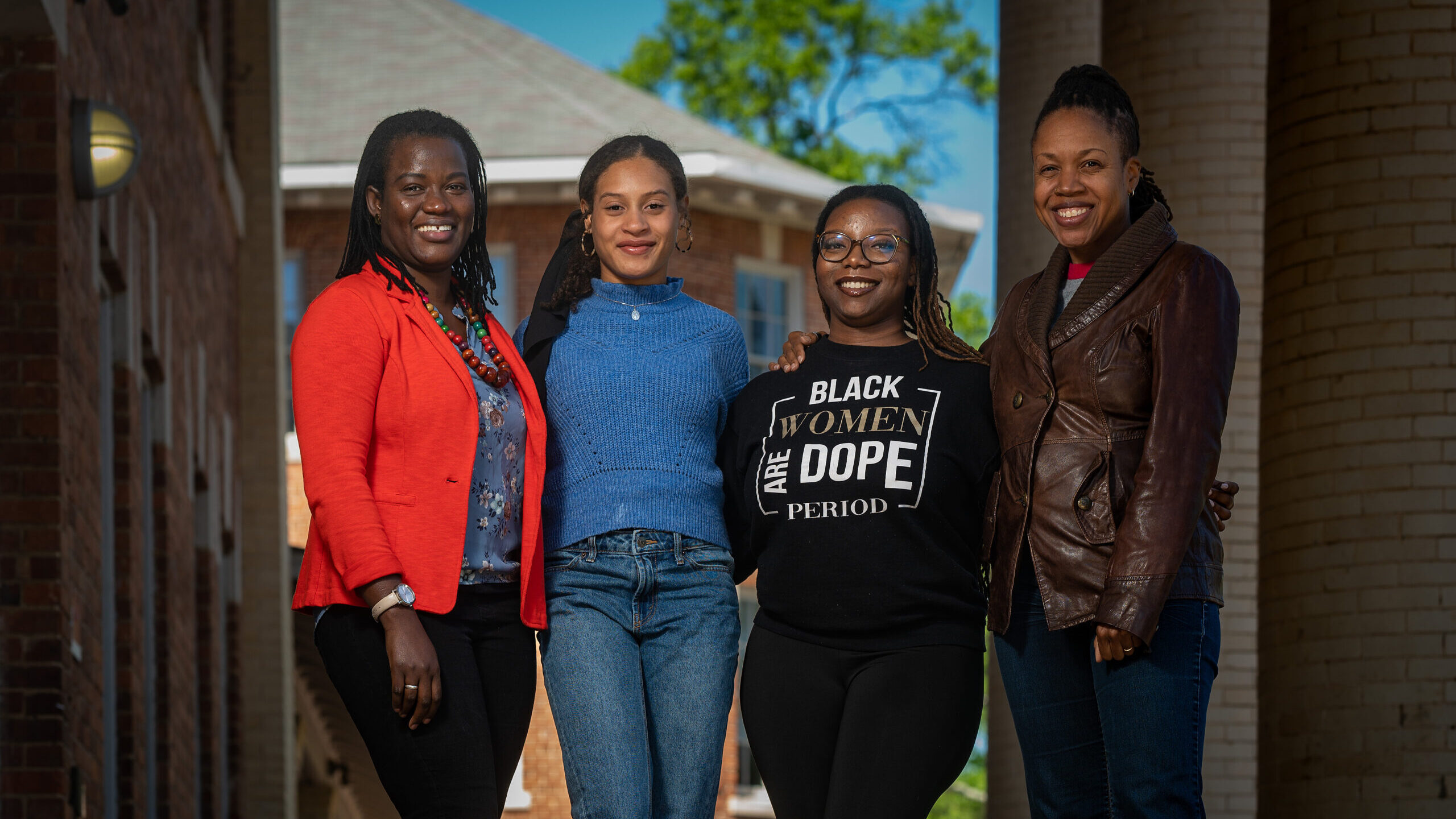Quiz: Talking Taboo
Prenups, tattoos and sobriety. How much do you know about navigating sensitive subjects? Take our quiz developed by communication professor Lynsey Romo.

Few topics are off-limits for communication professor Lynsey Romo.
In fact, Romo’s research often resides in the realm of conversational discomfort. She studies how people talk about money, substance abuse recovery, dieting and other sensitive subjects and stigmatized traits.
A University Faculty Scholar and recent U.S. Fulbright recipient, Romo’s prolific work has appeared in top academic journals for communication as well as in media outlets such as Time, The Wall Street Journal, NPR, New York Magazine and The Guardian.
We partnered with Romo to develop this quiz, based on findings from various recent studies. Test your knowledge of taboo topics.
It can be awkward for some adults to move back home with their parents. What can lead to a more positive experience?
People move back in with their parents for a lot of reasons, and the trend is increasing due to the COVID-19 pandemic and related economic woes. Our research found that there were a few things people did to make the move back home a positive experience, including setting clearly defined expectations for both parents and adult children. For example, do the children pay rent? Are they expected to be home by a certain time each evening? Things also worked more smoothly when grown children made clear what they would do to benefit the larger household, such as attending to domestic chores, and laying out what their career and financial goals were.
Prenuptial agreements, or “prenups,” can be difficult to talk about, but this approach may make it easier:
The semi-anonymous nature of Reddit lends itself to people talking freely about anything, including prenups. Our study found that Reddit commenters fell into one of two camps: people who felt prenups were good and people who felt prenups were bad. Metaphors helped many people reframe and understand other perspectives on prenups, including whether they are inherently problematic. For example, many commenters described prenups as “insurance” — preparing for the worst even though you don’t think you’ll need it. Others described them as safety features, designed to prevent harm.
Learning how to manage stigma is one thing people in recovery for alcohol misuse can do to stay sober. Which is NOT a strategy people can use to deal with stigma?
As being an alcoholic is still widely stigmatized, people in recovery used several strategies to manage societal stigma, as well as any internal shame they felt about being an alcoholic. These strategies enabled participants to stay sober without drinking any alcohol and embrace their healthier and more productive lives. While some participants felt that bringing their own drink or holding a drink that looked alcoholic helped them fit in and avoided drawing attention to themselves, no participants drank alcohol, even in moderation, as that would jeopardize their recovery efforts.
Other strategies included:
- Avoiding places where alcohol was served/engaging in fun but nonalcoholic activities.
- Asserting that being an alcoholic was not their fault, as it was a disease inherited by family members.
- Equating alcoholism as being allergic to alcohol, just as others are allergic to peanut butter.
- Reframing alcoholism by focusing on how rewarding their lives had become once they stopped drinking.
- Downplaying their past to emphasize their present successful reality.
- Acknowledging that everyone has struggled with something in their lives, which helped them to forgive themselves.
- Advocating and educating others about recovery and coming out as former alcoholics to help dispel stereotypes and stigma.
Health care is one of the largest stressors across all incomes and political affiliations, and people who experience health and financial struggles face even more uncertainty. How do people manage this dual uncertainty?
In addition to the above strategies, people experiencing health and financial uncertainty also avoided information and thoughts about health costs and adapted to chronic financial uncertainty, by taking one day at a time, coming to terms with always feeling uncertain, and turning to prayer and self-care.
With respect to their tattoos, research indicates that young adults:
Young adults are aware of the threat of tattoo stigma, especially in the workplace, and carefully assessed whether disclosing their tattoos was risky or rewarding. Participants verbally revealed their tattoos when they perceived that disclosing helped them bond with others, establish their identities and empower themselves. Conversely, participants concealed their tattoos when they perceived disclosure as harmful for their professional identity or potentially resulting in judgment from others.
Share your Results:


